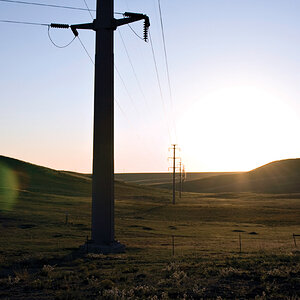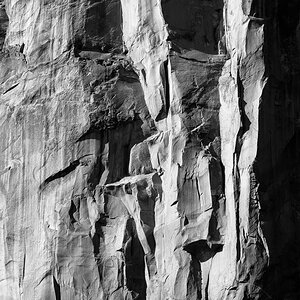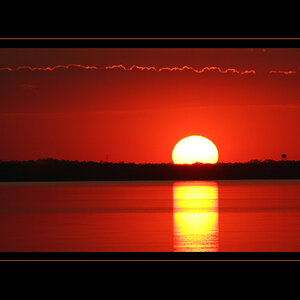- Joined
- Dec 11, 2006
- Messages
- 18,743
- Reaction score
- 8,047
- Location
- Mid-Atlantic US
- Website
- www.lewlortonphoto.com
- Can others edit my Photos
- Photos NOT OK to edit
Fishing as Metaphor
_______________________________
this is the introduction to an article I am writing on how to approach street photography. I will shamelessly incorporate useful comments into the final version and the total article (but will give credit where due.)
_______________________________
If one has a reasonably good overview of fishing as a hobby, it is interesting how well this activity maps over onto photography – and a closer view may well be both interesting and enlightening.
Both fishing and photography as 'hobbies' are activities done in one's leisure time for pleasure but derived or inspired by the same activity, done at a different, often larger scale as productive work. There is the odd similarity in gender unbalance, the details of which are too complicated to discuss here but which are well covered in a variety of articles on line like [Editorial] Photography: Is It Still A Man?s World? | Fstoppers and particularly in the data from the National endowment for the Arts Publications | NEA .
Even without getting into nitty details about the who, the similarities jump out: the requirement for special and sometimes specialized equipment, even within the field, the various niche environments that draw their own adherents and, most compelling, the constant talk about the hobby, the equipment and the niches that engages many adherents to a level that might even surpass the actual 'doing' of the hobby.
There is one specific kind of fishing that maps so interestingly onto a niche in photography that the examination of the fishing can actually inform the awareness of the issues of photography – and that area is fly fishing and its photographic equivalent of street shooting.
A novice fly fisherman generally approaches that sport niche without too much knowledge yet most believe that the primary issue is the equipment. Indeed there is a huge complexity in equipment, different lengths and weights of rod, different flexibilities that demand the use of different weight line, because it is the line not the lure that provides the weight and momentum to be cast. Then there is the leader, a thinner transparent nylon attached to the end of the line, tippets of even lighter, more invisible nylon and then of course the flies matched to the season, the manner of fishing and even the virtually unknowable appetite of the fish. The necessity to make decisions about what to get is almost overwhelming and yet required. Inevitably what one gets to start is, in some way, just as inevitably wrong and replaced. (I have 5 or 6 fly rods and some matching reels and lines, bought at different levels of involvement; each one slightly different but sharing an increasing cost.)
Once the new fisherman is suitably outfitted with waders and vest, with the rod and attachments only partially listed above and has even learned one or more variations on how to cast, he or she steps to the edge of the water and suddenly realizes one thing. All of this preparation, everything, does not make him or her a fisherman, it only prepares him or her to start to learn how to fish.
What he/she sees is water, usually moving, in all its various possible bumps, dips, hollows and planes. There are no signs, no flashing beacons that say, 'fish here, use this specific fly and in this specific size, then cast your line here, there is a trout waiting.' It is up the to the fisherman now to learn to read the water, to understand the environment and to place him/herself in the best position to put his fly so that, if a fish is there, the fish can strike at the lure.
And there is no certainty, no matter the amount of effort or the interest or the time expended, that any specific person will even get a strike because that is really up to the fish. And further there is no certainty, no matter the amount of effort or the time expended or the interest or the desire that any specific person will ever get to be a 'great' fisherman. Surely he or she might, by dint of repetition, improve but there is some ephemeral, unteachable talent that will, just like in photography, allow a person to be somehow better at this activity than his or her peers.
For four years, the time I lived in Colorado Springs, every Saturday morning that the weather allowed, I would drive with two friends up to the South Platte River at Deckers and, every Saturday morning, fishing the same stretches of water, using the same flies, the same one of my friends always, always hooked and landed more fish than I did.
Everything above, every implication about fishing, every caution about the limitation of ability placed by talent, well, they work in similar, equivalent ways in street photography.
to be continued
_______________________________
this is the introduction to an article I am writing on how to approach street photography. I will shamelessly incorporate useful comments into the final version and the total article (but will give credit where due.)
_______________________________
If one has a reasonably good overview of fishing as a hobby, it is interesting how well this activity maps over onto photography – and a closer view may well be both interesting and enlightening.
Both fishing and photography as 'hobbies' are activities done in one's leisure time for pleasure but derived or inspired by the same activity, done at a different, often larger scale as productive work. There is the odd similarity in gender unbalance, the details of which are too complicated to discuss here but which are well covered in a variety of articles on line like [Editorial] Photography: Is It Still A Man?s World? | Fstoppers and particularly in the data from the National endowment for the Arts Publications | NEA .
Even without getting into nitty details about the who, the similarities jump out: the requirement for special and sometimes specialized equipment, even within the field, the various niche environments that draw their own adherents and, most compelling, the constant talk about the hobby, the equipment and the niches that engages many adherents to a level that might even surpass the actual 'doing' of the hobby.
There is one specific kind of fishing that maps so interestingly onto a niche in photography that the examination of the fishing can actually inform the awareness of the issues of photography – and that area is fly fishing and its photographic equivalent of street shooting.
A novice fly fisherman generally approaches that sport niche without too much knowledge yet most believe that the primary issue is the equipment. Indeed there is a huge complexity in equipment, different lengths and weights of rod, different flexibilities that demand the use of different weight line, because it is the line not the lure that provides the weight and momentum to be cast. Then there is the leader, a thinner transparent nylon attached to the end of the line, tippets of even lighter, more invisible nylon and then of course the flies matched to the season, the manner of fishing and even the virtually unknowable appetite of the fish. The necessity to make decisions about what to get is almost overwhelming and yet required. Inevitably what one gets to start is, in some way, just as inevitably wrong and replaced. (I have 5 or 6 fly rods and some matching reels and lines, bought at different levels of involvement; each one slightly different but sharing an increasing cost.)
Once the new fisherman is suitably outfitted with waders and vest, with the rod and attachments only partially listed above and has even learned one or more variations on how to cast, he or she steps to the edge of the water and suddenly realizes one thing. All of this preparation, everything, does not make him or her a fisherman, it only prepares him or her to start to learn how to fish.
What he/she sees is water, usually moving, in all its various possible bumps, dips, hollows and planes. There are no signs, no flashing beacons that say, 'fish here, use this specific fly and in this specific size, then cast your line here, there is a trout waiting.' It is up the to the fisherman now to learn to read the water, to understand the environment and to place him/herself in the best position to put his fly so that, if a fish is there, the fish can strike at the lure.
And there is no certainty, no matter the amount of effort or the interest or the time expended, that any specific person will even get a strike because that is really up to the fish. And further there is no certainty, no matter the amount of effort or the time expended or the interest or the desire that any specific person will ever get to be a 'great' fisherman. Surely he or she might, by dint of repetition, improve but there is some ephemeral, unteachable talent that will, just like in photography, allow a person to be somehow better at this activity than his or her peers.
For four years, the time I lived in Colorado Springs, every Saturday morning that the weather allowed, I would drive with two friends up to the South Platte River at Deckers and, every Saturday morning, fishing the same stretches of water, using the same flies, the same one of my friends always, always hooked and landed more fish than I did.
Everything above, every implication about fishing, every caution about the limitation of ability placed by talent, well, they work in similar, equivalent ways in street photography.
to be continued
Last edited:



![[No title]](/data/xfmg/thumbnail/35/35879-b9a5a75c88f724f404f976b0c0e67dbd.jpg?1619737207)
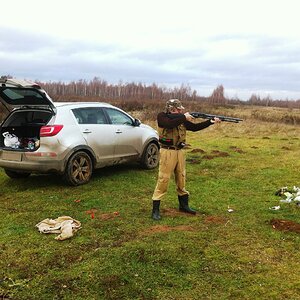
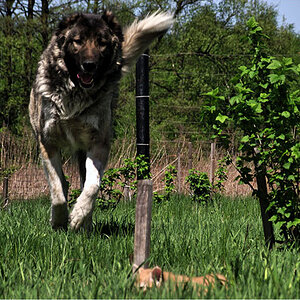
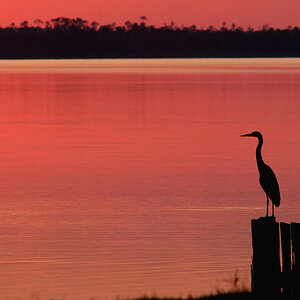
![[No title]](/data/xfmg/thumbnail/35/35880-9a6926237907ab72b42781d9a09698a6.jpg?1619737209)
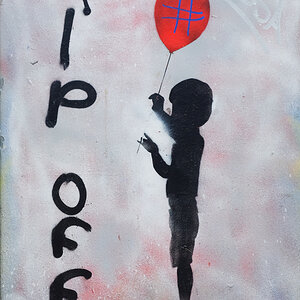
![[No title]](/data/xfmg/thumbnail/35/35878-753a9d58c095f0e1aaa96d03c025f6ce.jpg?1619737205)
